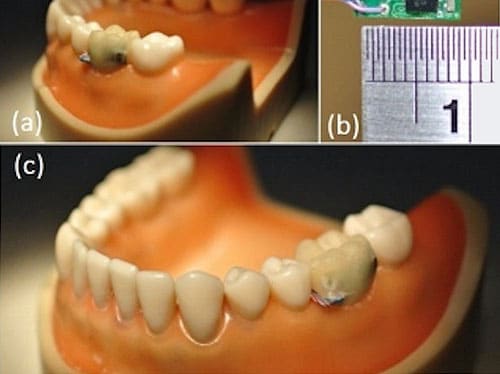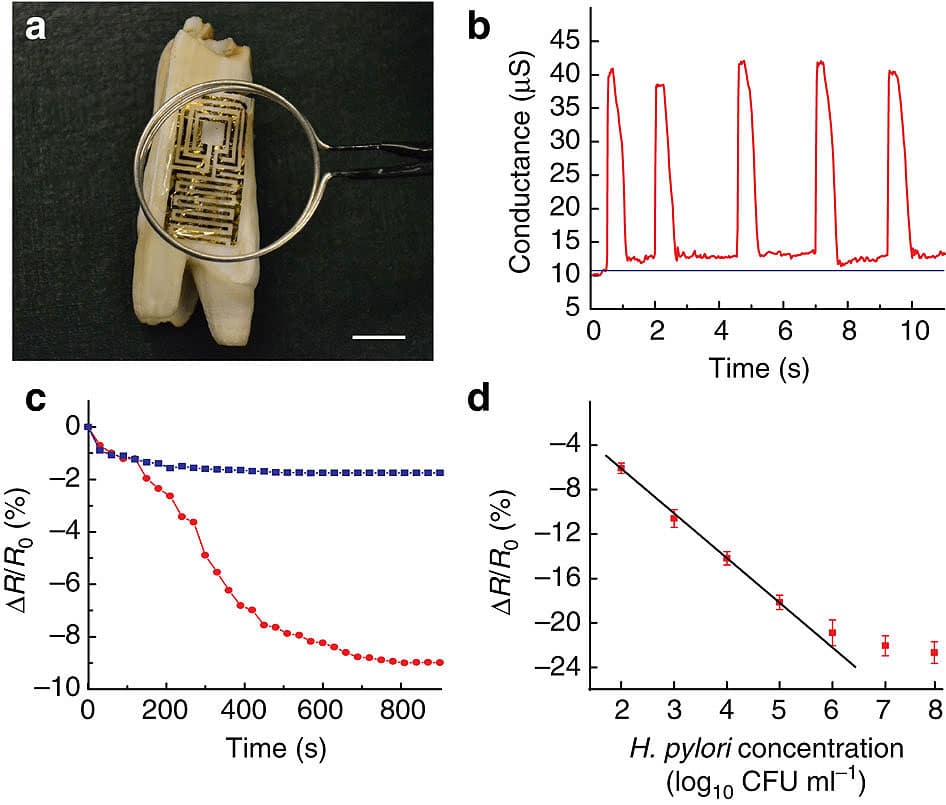When you think about it, when it comes to addiction, many of our vices enter our bodies through our mouths (alcohol, food, smoking, etc.). Wouldn’t it be nuts if your doctor could monitor whether or not you had a handle on your addiction by tracking data sent to him or her from a tooth sensor strategically placed in your mouth? It’s a wild idea, and one that could potentially be the motivation some people need to kick their habit, whatever it might be.
You’d no longer be able to fib. As a matter of fact, ‘lying through your teeth’ might even come to an end. At the moment, this tooth sensor is attached to an external wire, but once researchers are able to incorporate an internal battery into the sensor itself, it could become a reality. Currently, it is about 94% accurate when it comes to identifying what is happening inside a person’s mouth.
This wi-fi enabled tooth sensor was developed by researchers at National Taiwan University. There have been a lot of sensors like this lately (ones that are ‘wearable’ and can track biological data). This particular sensor can be attached to a real tooth, dentures or even braces. The results that the sensor generates can be sent directly to a doctor or nurse’s smartphone.
There are a lot of applications for a tooth sensor like this. They go way beyond simply monitoring addictions. However, the researchers are still making sure it’s completely safe. After all, nobody would want to accidentally swallow it if it came loose from a tooth. There are other safety concerns as well.
This isn’t the first time a team of researchers has developed a tooth sensor. Last year, a team at Princeton University developed a similar tattoo-like tooth sensor that would detect certain levels of harmful bacteria (see that one below too). Their particular prototype wasn’t small enough to work well on a human tooth (they did their testing on a cow’s tooth). I have no doubt that sooner or later we’ll have a tooth sensor that will be available to anyone who decides to use it. Would you wear one of these? Is it an invasion of privacy? I suppose it depends on what smartphone is on the receiving end of the biological data sent from your mouth.
Wi-Fi Enabled Tooth Sensor Knows All Your Secrets
(Click Image Below To Enlarge)
Via: [Discovery News] [Motherboard] [Nature Communications] [Mobile Health News]


COMMENTS